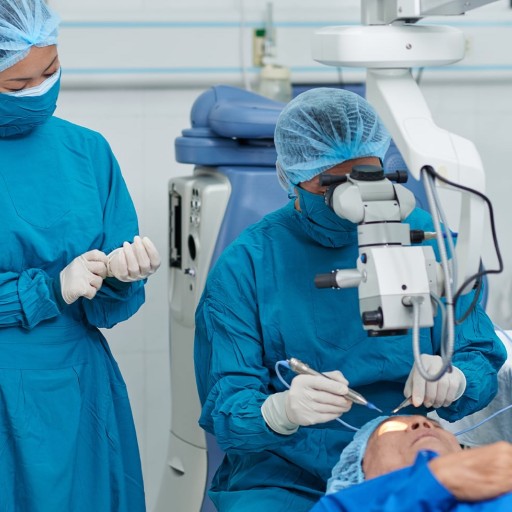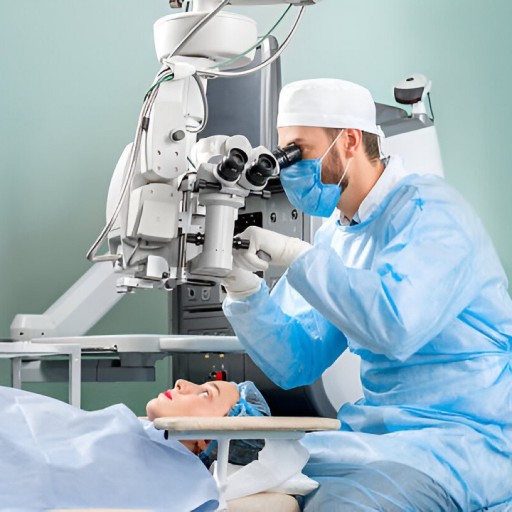Laser Surgery vs. Traditional Glasses: Which is Better?
Vision correction has come a long way. Gone are the days of thick spectacles and clunky methods. Now, individuals have options. You can choose between laser surgery and traditional glasses. Each option has its pros and cons.
The decision is personal and depends on your unique needs. Let’s dive into both alternatives. We’ll look at their benefits, drawbacks, costs, and long-term effects on your vision.
Understanding laser eye surgery
Laser eye surgery is often known as LASIK. It stands for Laser-Assisted In Situ Keratomileusis. This procedure has gained popularity for correcting refractive vision problems. These include myopia (nearsightedness), hyperopia (farsightedness), and astigmatism.
So, how does it work? During the surgery, a surgeon uses a laser to reshape the cornea. This reshaping improves how light rays enter the eye. The result? Clearer vision without the need for glasses. Sounds great, right? But let’s weigh the options before you dive in.
Benefits of laser eye surgery
The most important benefit of laser surgery is the instant vision correction it provides. Most patients see improvement in their vision almost immediately, with a lot of them achieving 20/25 vision or even better.
Another crucial gain is the durable solution for refractive problems. Unlike glasses, which require adjustments and updates frequently, laser surgery offers a permanent fix. After the completion of the operation, most people with clear vision do not have to deal with different prescription glasses anymore.
Many patients love the freedom that comes with ditching glasses or contacts. It can really boost their lifestyle. This is especially true for athletes and active folks who don’t want eyewear getting in the way.

Drawbacks of laser eye surgery
Many patients love the freedom that comes with ditching glasses or contacts. It can really boost their lifestyle. This is especially true for athletes and active folks who don’t want eyewear getting in the way.
But laser surgery does come with some downsides. Like any surgery, there are risks. You might deal with dry eyes, glare, or halos around lights. Rarely, there’s a risk of vision loss. Understandably, that can make people a bit nervous.
Then there’s the cost. Laser surgery isn’t cheap. It often runs between $2,000 and $3,000 per eye. Sadly, insurance usually doesn’t cover it, so it’s a hefty price to pay.
Lastly, not everyone qualifies for laser surgery. Things like age, eye health, and how stable your prescription is can rule you out. Most people after 40, even those who went through laser surgery, can require reading glasses later on in life.
Traditional glasses: A time-tested solution
Eyewear like prescription glasses has been used for centuries for correcting eyesight. They are used to bend the rays of light from an object, which would otherwise fall in the wrong position on a person’s retina. This increases the visibility of that image in the affected individual’s eyes.
Reasons why one should wear glasses
There are various reasons why people choose to wear traditional eyewear over laser surgery.
●Reasonable price and security: Eyeglasses are worn in a painless process. There isn’t surgery involved and no chances of any complications. This is a good option for people who do not want to go under the knife.
●Cost factors: While the initial cost can vary, glasses can be less expensive over time compared to the one-time cost of laser surgery. Additionally, prescription updates are often more affordable.
●Fashion accessory: In modern society, spectacles have also become a fashion statement. There are billions and billions of designs and frames available in the market or online. A lot of people take pleasure in how their frames stand out from the crowd and make a statement.

Drawbacks of Glasses
Glasses come with ongoing maintenance. They can get lost, broken, or damaged. Plus, regular prescription updates are needed, which can feel like a hassle.
They’re also not ideal for all activities. Whether it's sports or swimming, glasses can be inconvenient. They fog up, slip off, and block peripheral vision.
Comfort can be another issue. Some people find them uncomfortable, especially after wearing them all day. The pressure on the nose and ears can be annoying.
Long-Term Considerations
Glasses are reliable but not permanent. Prescriptions change over time, and so do your glasses. That means you’re in for regular updates, and the costs add up.
When weighing laser surgery against glasses, think about both the initial cost and long-term expenses.
Laser surgery comes with a hefty upfront cost. But many people see it as an investment. Over time, they save on glasses, contacts, and solutions, which can balance out the surgery's price.
Traditional glasses may have a lower initial cost. But as your prescription changes and trends shift, you’ll need new pairs. Insurance might help, but frequent updates still add up.

Which Is Better?
Choosing between laser surgery and glasses depends on your preferences and lifestyle.
●Lifestyle Considerations
If you’re sporty or live an active life, laser surgery might offer the freedom you crave. No need to worry about glasses slipping off mid-game.
But if you enjoy mixing up your look with different eyewear styles or just find glasses comfy, sticking with the classic frames could be your best bet.
●Age and Vision Stability
If you’re young with a stable prescription, laser surgery could be a long-term fix. For older folks, though, glasses might be a smarter choice, especially when presbyopia kicks in.
●Medical Factors
Got medical conditions or eye health issues? You might not qualify for laser surgery. In those cases, trusty glasses are the safer, simpler option.
Eyesight correction can be achieved by these two methods mentioned above: surgery or the use of spectacles. Performing laser surgery to rectify your eyes will eliminate the need for use of spectacles on a permanent basis. However, this procedure has its risks along with steep costs.
On the other hand, spectacles are better fashion sense, safe, and less intrusive, but have the drawback of ongoing maintenance.
The preferable option varies according to the patient’s condition, wishes, and habits. Clinics or individual practitioners should be consulted to make the right choice.
OTHER NEWS
-
- Winter aerobics: the secret of energetic dancing for the elderly
- By mth 14 Oct,2024

-
- The Secret Weapon of Elderly Health
- By MTH 21 Oct,2024

-
- Halloween from an Older Adult's Perspective A Joyful Mix of Tradition and Innovation
- By yl 10 Oct,2024

-
- Chair Yoga for Seniors: Staying Healthy Even with Limited Mobility!
- By ZH 18 Oct,2024

-
- Reimagining Retirement: Taking Control of Your Financial Plan
- By YCY 15 Oct,2024

-
- Yoga for the elderly, fall and winter seasons for health and well-being
- By yl 26 Sep,2024

-
- Greenery under the sunset - Gardening is a happy time for the elderly
- By LH 27 Sep,2024

-
- How can I prevent Alzheimer's disease?
- By LH 18 Oct,2024

-
- Winter Warmth Exercise:Indoor Activities for Senior Living
- By mth 24 Sep,2024

-
- Safety first: How can the elderly protect themselves from cold and slipping in winter?
- By zh 25 Sep,2024

-
- The Gift of Years: Thanksgiving in the Eyes of Older Americans
- By MTH 08 Oct,2024

-
- Staying safe and sound: essential tips for seniors to stay safe at home!
- By YCY 11 Oct,2024

 1
1 1
1